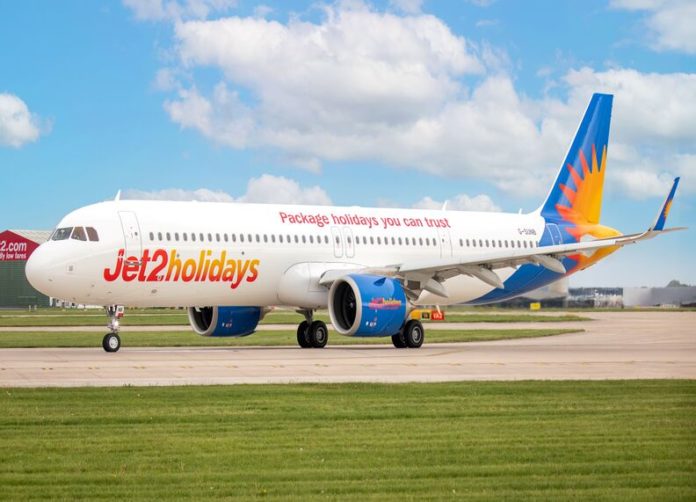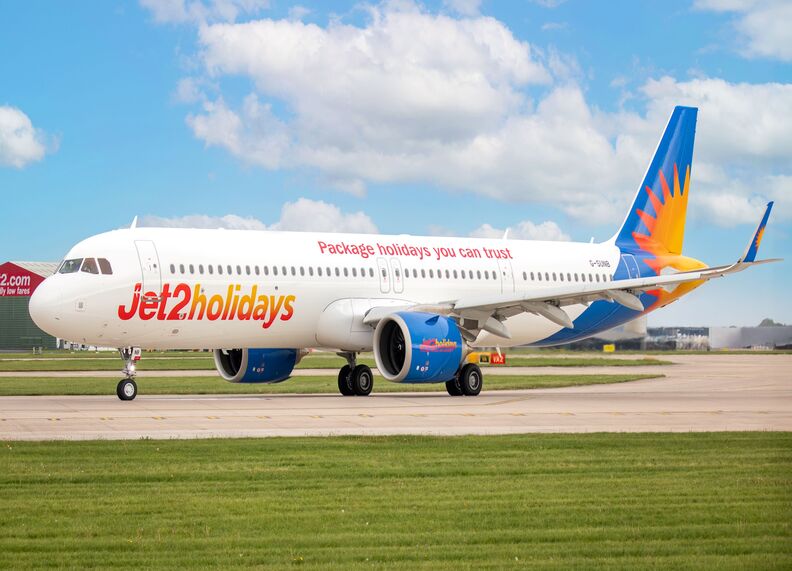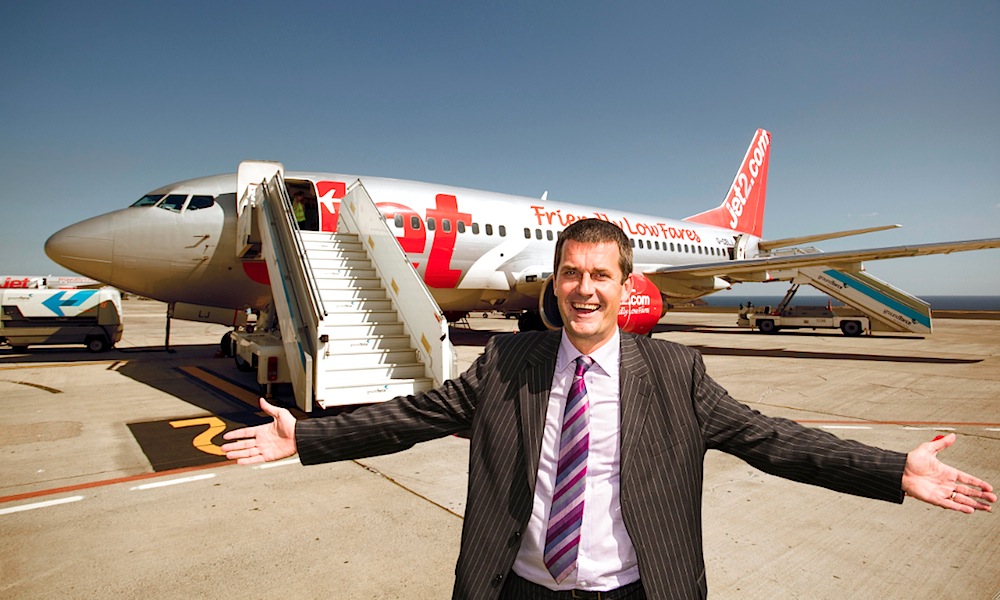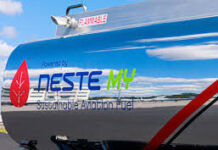
Holiday airline and tour operator Jet2.com and Jet2holidays has outlined its next phase of progression towards its goal of being a net zero emissions operator by 2050.
Jet2 services the island of Ireland through numerous routes out of Belfast.
A key component of the updated strategy is a new climate transition plan, focused on existing technologies and tangible actions that can be taken currently. This will see Jet2.com reduce its carbon emissions per revenue paying passenger kilometre (gCO2/RPK) by 35% in 2035 compared to 2019 (43.55gCO2/RPK in 2035 vs. 67gCO2/RPK in 2019).
This emissions reduction pathway will bring Scope 1 and 2 carbon emissions in line with SBTi guidance by 2035 and Jet2.com will be seeking SBTi validation of this in 2024. The tangible actions that will enable Jet2.com to achieve this include:
- The purchase of up to 146 new Airbus A321/320neo aircraft that are over 20% more fuel efficient than older aircraft.
- Increasing the use of Sustainable Aviation Fuel (SAF) in the total fuel mix to a minimum of 15% by 2035.
- Further electrification of Jet2.com owned ground service equipment, leading to a 99% reduction in emissions.

Steve Heapy, CEO of Jet2.com and Jet2holidays said: “I am proud of what we have achieved since launching our first sustainability strategy in 2021. We have invested in new and more fuel-efficient aircraft, as well as in SAF production here in the UK. We have launched a Certified Sustainable Hotels collection, removed millions of single use plastics from onboard our aircraft and met our carbon intensity reduction targets to date. As a result of all this hard work, we have been recognised amongst the top 10 airlines globally for sustainability, according to the CAPA 2023 sustainability benchmark report.”

“Today, we are publishing an updated strategy which is bolder in ambition and outlines an emissions reduction pathway which will bring Jet2.com’s 2035 carbon intensity in line with the Science Based Targets initiative (SBTi) guidance. Critically, this emissions pathway is realistic and achievable because it is based on technologies and actions that we know are available and can be taken currently, rather than what may or may not be available in the future. In addition, we will also be closely monitoring to see where we can invest in and embrace new technologies.
“Our strategy clearly sets out our vision to accelerate our sustainability journey whilst supporting our colleagues and the communities where we operate. What is now required is more tangible Government support, both here in the UK and in Europe, to help aviation decarbonise faster. The opportunity is right in front of us, and the UK can become a global leader in SAF, carbon capture and decarbonisation technology with the right support from Government, but the time to act has to be now.”




